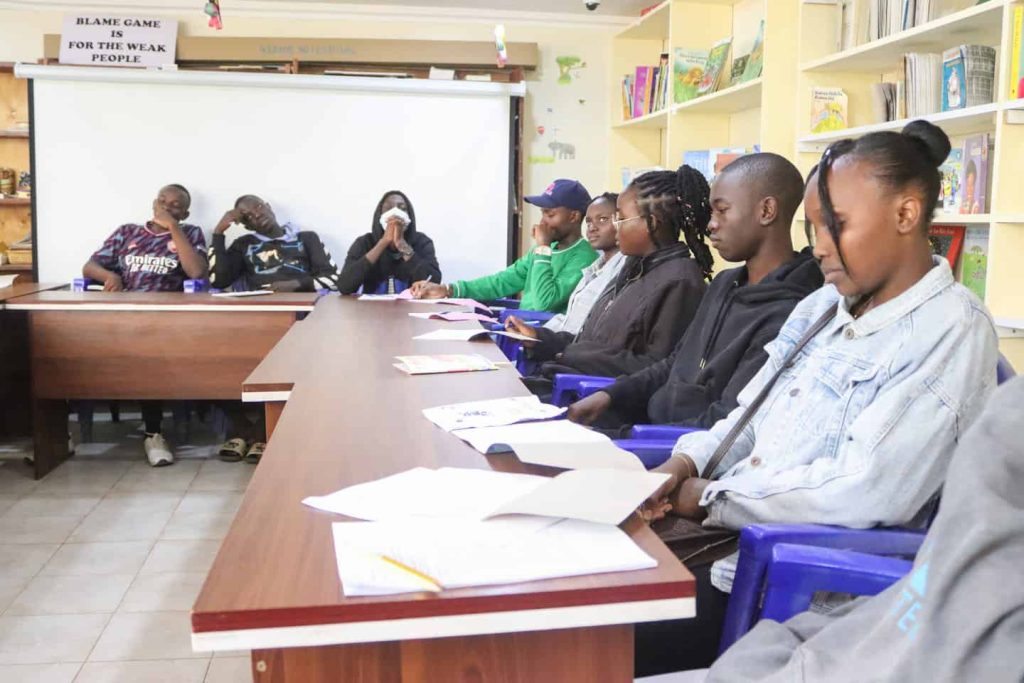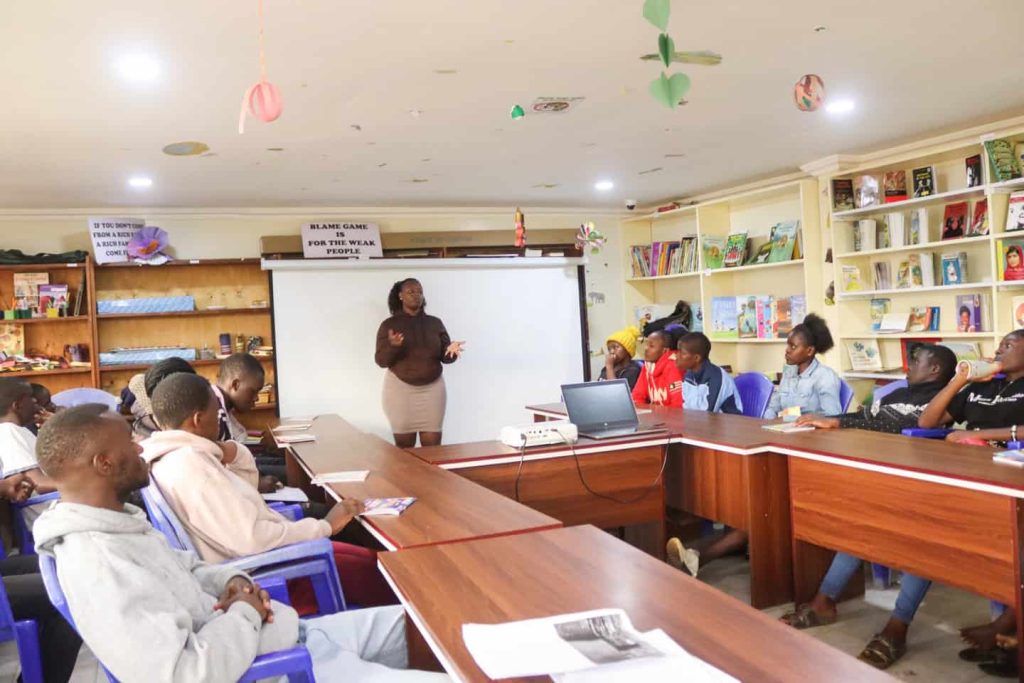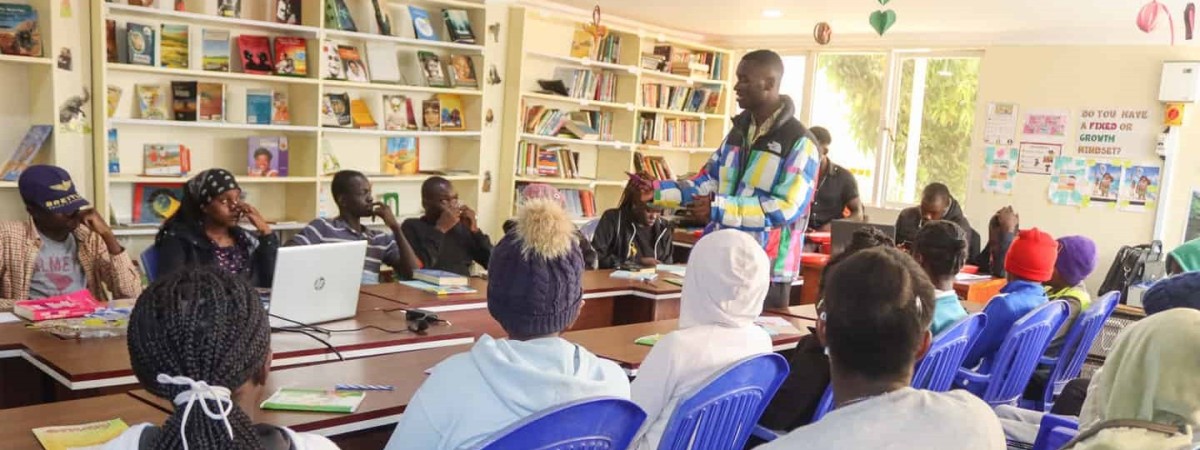While our primary purpose is to provide education, we know that nutrition, good health, and a safe living environment are essential to learning. To maximize student success, we support the health and well-being of our students by providing regular meals and medical care and support and training programs for Sexual and Reproductive Health, Drug Awareness and Abuse, and Mental Health.

During the just-concluded school break, we had our high school students taken through Sexual Reproductive Health training at the NRCF offices. The training started on the 25th to the 28th of April at the NRCF offices. This training aimed to equip the students with the essential knowledge to make informed decisions regarding their sexual and reproductive well-being and it was being facilitated by Youth Peer Providers (YPP) who have undergone training by Parenthood Global.
Some of the topics covered include:
- Mental health: Understanding the impact of mental well-being on overall and where and when to seek support when needed
- Drug and substance abuse: Recognizing the risks associated with substance abuse and developing skills to resist peer pressure
- Teenage pregnancy: Exploring the consequences of early pregnancy and fostering awareness about responsible sexual behavior
- Abortion: Informing students about the legal aspects, health risks, and available support systems surrounding abortion, while emphasizing the importance of making informed decisions
- STIs: Educating on prevention methods, testing, treatment, and reducing stigma
- Menstrual hygiene: Understanding and destigmatization of menstruation, while providing practical guidance on menstrual hygiene management
- Contraceptives: Introducing various contraceptive methods, their effectiveness and ensuring the students understand their rights and choices regarding contraception
- Consent: Discussing the significance of consent in relationships, emphasizing mutual respect, and promoting healthy communication

The SRH training proved to be highly beneficial as relevant topics were addressed and there was provision of a safe space for discussions. Furthermore, the interactions with the Youth Peer Providers allowed the students to receive information from relatable role models who understood their perspectives and concerns. This peer-to-peer approach promoted an open and non-judgemental environment, encouraging the students to actively participate.
Through this initiative, we continue to contribute to the holistic development and well-being of the students and we are more motivated to support such initiatives.
